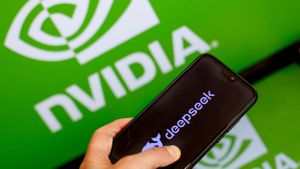The emergence of DeepSeek, a little-known Chinese startup, has sent shockwaves through the tech world, particularly among industry giants like OpenAI and its backers. Launched just before the Lunar New Year, DeepSeek offers remarkably powerful artificial intelligence models at prices significantly lower than its most notable competitors. This development has been so impactful, renowned investor Marc Andreessen referred to it as "a Sputnik moment," alluding to the historical significance of technological breakthroughs.
DeepSeek stands out by using less advanced chips, enabling it to deliver sophisticated AI technology at approximately one-twentieth the cost of rivals like OpenAI. While the exact financials are complex, what’s clear is the potential for reduced costs leading to widespread accessibility of advanced AI technologies.
This drastic shift toward cheaper AI options has raised eyebrows, particularly within Silicon Valley where startups and established companies have been closely monitoring DeepSeek’s progress. Industry experts note how DeepSeek’s approach to artificial intelligence is prompting companies to rethink their current partnerships and AI strategies—many are already considering re-evaluations of their long-term collaborations with traditional providers.
DeepSeek’s models have received positive feedback from Silicon Valley investors, but the company faces scrutiny. OpenAI claims DeepSeek may have used its proprietary technology improperly, leading to broader discussions around intellectual property and the ethics of AI development. The tension reflects the industry's growing pains as it grapples with rapid innovation and the accompanying legal and ethical ramifications.
DeepSeek's open-source model has sparked interest from numerous companies, enabling them to download, use, and modify the AI systems as needed. Dmitry Shevelenko of the startup Perplexity, which recently adapted DeepSeek’s technology, expressed urgency around modifying the outputs to align with Western sensibilities. "We’ve been sprinting to make it truly uncensored," Shevelenko shared, alluding to the restrictions on content associated with the Chinese Communist Party (CCP) within the original model.
These security concerns pose significant questions for companies considering DeepSeek's offerings. The data security aspects are troubling for many, particularly those wary of the authority the CCP holds over Chinese tech firms. Sim, the founder of Boldstart, has warned others against downloading the DeepSeek app due to potential data privacy issues, prompting discussions across the business community about how to responsibly integrate foreign technology.
Despite apprehensions about data privacy and compliance, the rapid advancements attributed to DeepSeek cannot be overstated. The company's technological innovations represent an unambiguous boon for businesses hoping to adopt AI quickly and affordably. DeepSeek, which was spun out of founder Liang Wenfeng's hedge fund, has utilized Nvidia's H800 chip to provide its service, crafting unique optimizations and inference approaches enhancing its efficiency.
While rival companies such as Microsoft and Amazon have been quick to integrate DeepSeek’s capabilities within their cloud offerings, analysts predict larger shifts within the AI market. "A few years’ worth of cost compression just happened in a matter of days," Ed Sim noted, emphasizing the substantial transformation and consequent realignment of market expectations.
AI pricing, particularly concerning customer service, health tech, and coding services, has come under renewed scrutiny. OpenAI and its competitors typically charge based on tokens, creating pricing structures some businesses are finding increasingly prohibitive. The potential for DeepSeek to disrupt this model is quite significant, promising not only lower prices but potentially more agile deployment of AI technologies across various sectors.
Looking at the future, firms are beginning to realize the added benefits of having varied technology providers. Baris Gultekin, the AI chief at Snowflake, stated, "Choice is always good for businesses," indicating how DeepSeek's arrival allows for more competitive dynamics within the tech industry.
The overall consensus is growing clearer: DeepSeek’s entry may signify the dawning of not just new tools, but fundamentally different business relationships within AI. The market appears ready to embrace this shift, even as it raises notable questions about governance, security, and ethical standards. Industry leaders must navigate these waters carefully as they adjust to the consequences of DeepSeek’s disruptive innovation.



